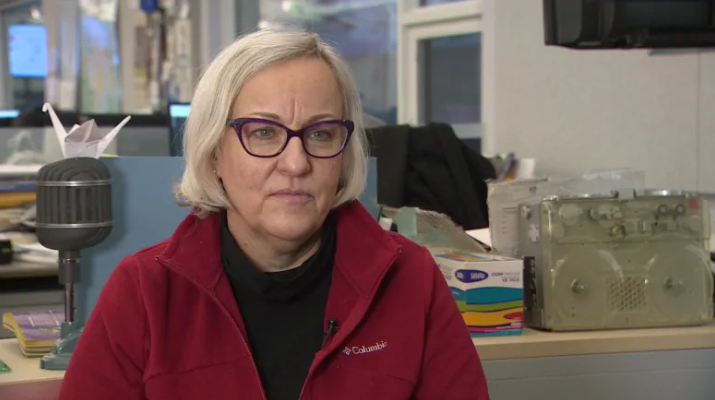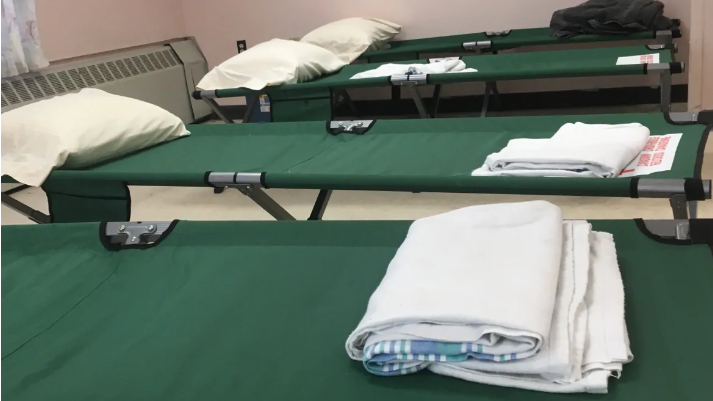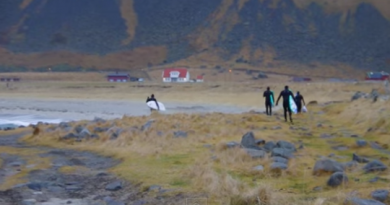Damp shelter in Arctic Canadian city of Iqaluit expected to reopen in mid-January

Iqaluit’s damp shelter will reopen later on this month, thanks to a new agreement with the Uquutaq Society.
The non-profit has signed a contribution agreement with the Government of Nunavut to run the low-barrier shelter. They expect it to be up and running by mid-January.
“We’re really, really happy we are able to do this,” said Laurel McCorriston, executive director of Uquutaq Society.
The low-barrier shelter was started as a three month pilot project by the territorial department of Family Services. The project was extended another three months and closed in June. Since then, the department has been looking for a partner to take on the shelter permanently.
“We felt like it was a natural extension of the work we are already doing,” said McCorriston. Uquutaq Society also runs the men’s shelter, which they said has been over capacity.
Over the summer the men’s shelter had to limit occupancy to 50 people because they were getting as many as 80 people spending the night. McCorriston said they usually only get that many people in the winter.
“We are up and over, lately, our limit,” said McCorriston.

McCorriston said people were sleeping in the hallways, which they had to stop because it was a fire safety hazard. She said more cots have been ordered so people can sleep in the dining room.
“I think there is a lot of homelessness here that we’re not aware of,” said McCorriston.
The damp shelter will have a hard cap of 17 beds open to both men and women who are 19 and older, and will be located in the same place as the pilot project, in building 534.
During the pilot project, the shelter was averaging 24 people a night, McCorriston said. A total of 211 people accessed the shelter in the six months it was open.
“We expect people to come and we will turn people away at both shelters,” said McCorriston. “We are tracking that so we can give that information out to the people who are responsible for funding these.”
Jail cells acting as temporary shelter
When it was open, the damp shelter was the only shelter in Nunavut where people who are intoxicated can go. Often, they will end up in RCMP cells overnight because they have no other option.
Staff Sgt. Garfield Elliott said RCMP often end up knocking on doors, looking for a friend or family member who will take in an intoxicated person.
“Have four of five of those in a night, it adds up,” said Elliott in an email to CBC. “That is time taking members away from other investigations/calls for service.”
Elliott said they always tried to find clients an alternative place to stay before taking them to the damp shelter. But since the shelter closed, they are ending up in cells.
“Lodging prisoners that are non-violent and the only thing is they are intoxicated in public place is better served in a place such as a damp shelter,” said Elliott, in an email.
The damp shelter is funded by the department of Family Services until the end of March, but is still looking for funding on a permanent basis. McCorriston said they are estimating the shelter will need $600,000 a year to operate.
The Uquutaq Society has had to hire more staff to run the damp shelter, and will have two to three people on a shift.
Right now, the Uquutaq Society is buying equipment, like cots and computers, and getting their insurance in order before they can open.
Related stories from around the North:
Canada: Study gives Canada’s northern territories failing grades on curbing alcohol harms, CBC News
Finland: Finland’s six-year slump in alcohol sales ends, Yle News
Sweden: Swedish Centre Party promises tax break for rural northerners, Radio Sweden
United States: Alaska capital budget vetoes to hit homelessness, addiction treatment, Alaska Public Media



